


Meet the 41 Narco News Authentic Journalism Scholars, Class of 2011
These Talents of Social Conscience Will Come Together for Ten Days of Intensive Training in Mexico in May
By Al Giordano
President, School of Authentic Journalism
March 14, 2011
CAIRO, EGYPT, MARCH 14, 2011: Once again, another class of the School of Authentic Journalism is presented to you, the readers and supporters who make it all possible. I know you will absolutely love reading about each and every one of them, including some of their own words that they shared with us to cause us to choose them from a pool of more than two hundred long, completed applications, and as a result of an extensive follow-up interview process.
Two of them applied for the 2010 j-school and didn’t make it. Their persistence this time was the charm. Three were unable to obtain visas to attend past schools they had been accepted to attend. Our stubbornness intends to bring them this time. This year’s class comes from Africa, Asia, Europe, and North, South and Central America. All of these individuals are fantastic, hard working, and each brings a unique perspective and set of experiences to the rest of us. Together, they now become even bigger as a whole than the sum of their parts.
I normally pen a longer introduction to a hopeful announcement like this, but by the time you read these words Greg Berger (School of Authentic Journalism, class of 2004) and I will have landed in Egypt where we are interviewing organizers and independent media makers of the historic civil resistance that last month toppled the regime of dictator Hosni Mubarak about how they did it, and how others in other lands can do the same. Then, next week, we’ll be training 26 North African, Middle Eastern and European journalists and communicators for four days in Madrid to better report on civil resistance movements in ways that enhance those movements’ chances of success.
The Authentic Journalism Renaissance now has the sister we’ve always worked to make possible: The Civil Resistance Renaissance. And our world is changing daily, and for the better, as these movements grow. The great engine of our little corner of this global awakening that is bigger than any of us has been the Narco News School of Authentic Journalism, since 2003. This May’s session in Mexico will be the largest ever, with 41 scholars and an equal number of professors, many of whom graduated in previous years and have gone on to do the work of our times.
So here are some brief introductions to them. In not one have I done full justice to the deep and complex experiences and talents of each of them. It may seem like I know more about some than others, and that’s true. If it seems like I’m favoring one over another, or writing more generously of him or her, well, that only means that I’ll be harder on those to whom so much great power has been given, and thus from which great responsibility is expected.
Yet our experience is that at the School of Authentic Journalism, where everyone’s light shines brighter under intensive work and sharing of knowledge and personal experience, we never really know until the school actually happens who will go on to do the greatest of works in the years to come. The only thing we are sure of is that many of these folks you meet today are the authentic journalists you will be hearing from again and again as the years march on and the struggles intensify for a truly free press—an authentic media—that is not the manipulator of the people but its partner in the evolution of our species toward greater freedom, justice, human rights and authentic democracy.
For ten days in May, these journalists will be reporting for Narco News, learning, teaching, and becoming the best informed journalists on earth about the strategic dynamics of human struggle. We’re thrilled with this year’s class. We think you will be too. So, with no further ado, I present to you, kind readers, the Narco News School of Authentic Journalism class of 2011…
Aiofe Allen, 29, London, England
 |
“Growing up in Ireland, I was aware of media attempts to discredit and depoliticize highly political demands by civil rights campaigners, politicians and paramilitaries in Northern Ireland. This phenomenon is being repeated today whereby a widely accepted narrative has evolved since the onset of the ‘War on Terror’ that shadowy enemies want to destroy the West because they hate human rights and freedom, period… Much of the mainstream media in Europe and the US, even those purporting to be left of centre, have become part of a narrative that divides the world and its population into us and them, defining the Muslim world as a dangerous and primitive ‘other.’ A similar narrative developed in relation to socialism between the 1950s and 1980s, causing incredible damage to Latin America…
“The authentic journalist does not have an obligation to support one government or another, regardless of past support. His or her duty is to record and report the concerns and activities of ordinary people seeking some sort of justice for their cause, even if that reporting proves unpopular among parts of the political classes. Governments are in the privileged position of having a budget to pay media specialists and manipulate their images to suit them. Grassroots social movements tend not to be so fortunate, and need the authentic journalist to help them find a voice.”
Please consider supporting Aiofe’s (her name is prounounced “ee-fah”) scholarship at this link:
Aldo Orellana, 28. Cochabamba, Bolivia
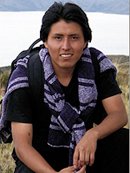 |
“I consider myself a militant of alternative media, which has played an important role in Bolivia in being accessible to social organizations, and new technologies have allowed still wider access to information, although there is much still to be done…
“I believe we can all be journalists. In fact, we all are in certain ways. I don’t agree that the exercise of journalism should be limited if one hasn’t pursued it professionally as a career. I also think that if any commentator wants to exercise journalism that he should tell the truth… I think that independent and authentic journalism should not lose sight of the political and historic horizon of our struggles, which is social transformation in all areas of life.”
Please consider supporting Aldo’s scholarship at this link:
Alex Ellgee, 24, Tak, Thailand
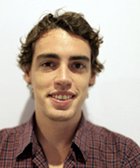 |
“The more one travels, the more one learns about the wrongdoings, the inequality and the unimaginable oppression that people are facing on a daily basis across the world… We (journalists) are part of a big social movement trying to bring democracy to Burma. We are the media pillar of this movement, working hard to get secret information out of Burma and highlight human rights abuses inside of the country to give the international community a better understanding of the dire situation inside Burma…When I come back from the School of Authentic Journalism I will host a small training for Burmese journalists about what I learned there.”
Please consider supporting Alex’s scholarship at this link:
Alphonce Shiundu, 27, Nairobi, Kenya
 |
“I was born, bred and I live in Kenya. That makes me proudly Kenyan and that will explain my obsession with changing the way things are done around here. It’s hard. It’s difficult. But I try. That’s why I am a journalist… Journalism is my life. It pays all my bills. And that, by any measure, is a very huge huge difference in my life. In other people’s lives, my stories make a lot of difference. They make the normally lazy authorities act. That puts a smile on my face and on many other people’s faces…”
We asked all the applicants to the School of Authentic Journalism this question: “Are an activist and an organizer the same thing? If not, how are they different?” Alphonce really got our attention with this answer, one of the best we’ve ever received in years of asking that question:
“NO. An activist is a person who’s passionate about a cause and will stop at nothing until that cause is addressed. After that, they change tack, look for another cause and pursue it. Activism, allow me to say, is a form of unplanned, emotional, confrontational and sometimes irrational pursuit of a cause. An organizer, on the other hand, is a person with a vision and who takes calculated steps to address the issue at hand. An organizer dwells on rallying people to join the cause and is often persuasive, with a push to have more people on board. Unlike activists, organizers are often ready to take responsibility for their actions, are good listeners, and have a systematic approach in the execution of their plans to reach their goals.”
Since one of the big reasons we host the School of Authentic Journalism is to help our scholars and each other better report on social movements and civil resistances, we note that being able to recognize and sort between the “activists” and the “organizers” in any cause is the quickest route to being able to understand the strategies and tactics that the organizers pursue on the path to victory. That’s where the authentic news story usually happens. Alphonce, obviously, already has that part figured out. By the way, Alphonce turned 27 this week, and so this scholarship is also in international celebration of his birthday!
Please consider supporting Alphonce’s scholarship with a birthday gift toward it at this link:
Anya Bird, 28, Sherbrooke, Quebec
 |
“In the face of all the cops and the riot gear and the tear gas, I realized that my only weapon was the video camera, and that all I could do was document the violence and the injustice of what I was witnessing and experiencing. It had a huge impact on me, especially hearing how the whole event was portrayed by the National Broadcasting Corporation. I remember being so upset, almost in tears as I listened to the gross prejudice displayed by the journalist…
“I am acutely aware that at this point in my life I need further training in order to achieve anything… to strengthen the skills I already have in editing and practice getting the results of a day’s work of filming online within that same day. I have a problem with reels and reels of footage that never make it online. I need to improve my technical skills in relation to viral video as well as develop an ease with the editing process and the moral responsibility that it entails.”
We’ll do our best to provide Anya with the advanced skills and training she seeks.
Please consider supporting Anya’s scholarship via this link:
Buya Jammeh, 28, Dakar, Senegal
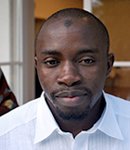 |
“Opposition in any democratic society has the right to criticize government policies and to hold the government accountable to the people. The media in any democratic society should promote divergent views of all political sectors and members of the public who are directly affected by government policies. The ultimate aim of a movement is that it wants the wrongs to be corrected or a change in the case of dictatorship or autocratic government. However, even if a journalist’s work helps to bring about a change and the party in power then also becomes authoritarian, it is the duty of the same journalist to expose the regime and remind authority of the promises it made to the electorate before it came to power…”
Please consider supporting Buya’s scholarship via this link:
Candice Vallantin, 26, Montreal, Quebec
 |
“I think anyone who is curious, critical and who has the tenacity and determination to follow up on their questions and talk to strangers from all walks of life has the capacity to be a journalist. A good journalist will also pay attention to detail, have forethought and an ability to improvise. It’s also hard to make it a paying job these days, so anyone interested in making a lot of cash probably shouldn’t be a journalist. We live large, but it’s certainly not with the weight of our wallets, that’s for sure…
“Especially in the 21st century, when we are constantly assaulted with information from various mediums, few people have the time, the will or the skill to decipher the source of each new emerging message, movement or voice. Our job as journalists then, is to act as the collective memory of a forgetful citizenry. An authentic journalist is not concerned with defending state power or discerning critics of that state’s power. Instead, we should be concerned with holding those in power accountable to the people who brought them to that position in the first place…”
Please consider supporting Candice’s scholarship at this link:
César Manjarrez, 35, Mexico City
 |
“Televisa and TV Azteca have not vacillated at any moment from putting their informational spaces and communicators at the service of their political and economic interests, to attack or discredit people or business that they feel threaten their media duopoly and/or any other economic interest. They have simulated coverage that pretends objectivity only to end up being promotional vehicles for figures with political ambitions who, in turn, have to commit themselves to favor the interests of those who give them media support. All this has turned news into a spectacle that doesn’t help its audience discern among national phenomena, which in a country that barely reads newspapers has nefarious consequences. Their way of doing things is highly damaging for all aspirations to construct a democratic nation.”
Once we read César’s application, we didn’t waste any time: César is already working with Narco News TV and related projects as a volunteer video producer.
Please consider supporting his scholarship at this link:
Cheyenne Cary, 21, Davis, California, US
 |
“I’ve been doing journalism since high school, and I think it’s one of the most vital and most undermined roles in a functioning democratic society. I’m a humanistic anarchist and in my life and writing I’ve been trying to parse the ‘love is all you need’ hippie principles of my parents’ generation into a world trapped in a neoliberal banking paradise. I want to give a voice to the voiceless and power to the powerless, and my writing and media talents are my weapons of choice…
“My interest is primarily in video production, because I think this is an uncannily effective medium to communicate what is –really- happening in the world. It puts people ‘in the movie’ and can serve to educate and also expand understanding and compassion to motivate effective action. I’ve been into filmmaking since I was a creative little 10 year old with my parent’s huge old VHS camera. I’d love to leverage my technology skills in multimedia journalism.”
Please consider supporting Cheya’s scholarship via this link:
Ela Stapley, 31, Barcelona, Catalonia
 |
“From the Amazon basin to troubled zones in Kosovo, through teaching, translating and journalism, I have met people willing to share their stories with me. I have taught people of all ages, races and beliefs from rich to poor. I have worked at various NGOs as a researcher, writer, translator and interpreter. I studied journalism and became disillusioned with mainstream media. I have worked as a fixer, radio researcher and presenter. More recently alongside teaching I have been involved in online citizen journalist sites where, as well as translating, I wrote articles on human rights and free speech in Latin America. I have recently started investigating human rights abuses of prisoners in Spain…”
Already an experienced investigative reporter in written form, Ela is coming to the School of Authentic Journalism to learn some new moves:
“I am interested in the moving image and how it can be used to tell a story. Pictures are able to reach a viewer in a way that print cannot. I have no experience of video production and want to learn this skill.”
Please consider supporting Ela’s scholarship at this link:
Hanna Nikkanen, 29, Helsinki, Finland
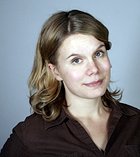 |
“I quit my job in December. It was a wonderful job: I was the editor-in-chief of Fifi, a Finnish-language online daily for an activism-prone audience. I got to build it from scratch in 2008 and play with our brilliant little team for two and a half years. I left in order to return to two things: writing and travel. Joining the School of Authentic Journalism was the thing on top of my mind when I decided to go freelance. As luck would have it, the May 2011 session was announced just a few days later. I grew up knowing that I’d become a journalist. It turned out I’d become an activist first. For the last ten years, I’ve been trying out different combinations of the two roles…”
“A lot of the journalism that I am interested in involves people and communities that are dealing with some kind of conflict or trauma. The journalist’s responsibility often goes both ways: on one hand, there is a responsibility to report; on the other hand, there is a responsibility to avoid harming victims…”
Please consider supporting Hannah’s scholarship at this link:
Henry Taksier, 22, Gainesville, Florida, US
 |
“A lot of people don’t really listen to others; they just wait for their turn to speak. A journalist should be willing to lend an ear to anyone and interpret their words with an open mind, free from any preconceived prejudice they might have.
“If you’re rigid and only seek to find evidence that confirms your established worldview, and your goal is to frame the struggles of others for the sake of manipulating the public, you should not be a journalist…
“There’s a fine line here, because no journalism is entirely objective…
“If I don’t receive this scholarship for whatever reason, I still appreciate your time and consideration. I also intend to try again next year…”
Too late, Henry! We’ll take you now.
Please consider supporting Henry’s scholarship at this link:
Ingrid Morris, 29, Bogotá, Colombia
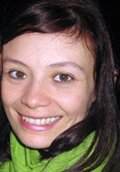 |
“In Colombia, bad journalism has brought about an infinity of permanent victims that not only come from the most marginalized populations but also from different ideological sectors of society. As a concrete example one can cite the powerful mass media of this country such as the TV channel RCN, Caracol and its radio stations as well as the daily newspaper, El Tiempo, who in their zeal to reproduce and receive their partnership with the government publish and broadcast only the official information distributed from the presidential palace during the eight years of President Alvaro Uribe Velez’s administration. This information coming from a polarized government implies that the towns, communities, and social organizations, among others, that speak of Human Rights, are vehemently judged as guerrillas, to such an extent that paramilitary organizations attack and threaten them.”
Truth is, Ingrid came highly recommended by graduates of the School of Authentic Journalism as the kind of gutsy and free thinking journalist we seek.
Please consider supporting Ingrid’s scholarship via this link:
Irene Caselli, 29, Quito, Ecuador
 |
We ask all our applicants this question: “Should any kind of speech be prohibited at a journalism school? Why or why not?” And we really liked Irene’s response. She wrote:
“I am happy to listen to all sorts of opinions. During my time in Chile, I talked to those advocating for a return of Gen. Augusto Pinochet to power, as well as those whose family members were disappeared by the Pinochet regime. While it is clear to me where my sympathies lie and that Pinochet supporters do not deserve the same attention as people fighting for human rights abusers to be brought to justice, I also believe that it is important to take time to hear everybody’s point of view, at least once, as long as there is space for a response. I think that journalism schools represent a good arena to practice the art of listening and questioning, and hence I think that nothing should be prohibited in order to make the school more challenging.”
To be an authentic journalist, one has to be a good listener, a quality that Irene clearly has.
Please consider supporting Irene’s scholarship via this link:
Iván Sánchez López, 28, Alicante, Spain
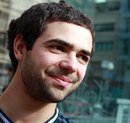 |
“The commitment of an authentic journalist is with the truth. Along the road he comes across a multitude of intermediaries, from governments dedicated to perpetuating themselves and consolidating their power to social movements that pursue the betterment of the conditions in the life of human beings or their community, whether through conservation of their patrimony, strengthening of their identity or promoting their own legislation. The possibilities are so wide as to be innumerable. Facing this panorama, a journalist must know how to position himself as one who relates these realities utilizing concrete acts and facts…”
Please consider supporting Iván’s scholarship via this link:
Jeremy Dupin, 26, Port-au-Prince, Haiti
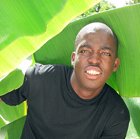 |
Haiti-based journalist Ansel Herz, who was able to attend the 2010 School of Authentic Journalism, writes this about Jeremy’s work since then:
”I first met Jeremy over lunch to discuss prospects for collaborating together on reporting in Haiti. Not long afterward, in January of last year, a massive earthquake leveled Port-au-Prince. Without a solid house and working alone, I struggled to get my reporting out. It wasn’t until a few days later that Jeremy and I saw each other again. His home was damaged too, but he had already linked up with international TV crews reporting on the devastation. Having worked as a reporter, producer and cameraman for TeleSur in the years prior, Jeremy was highly sought-after for his connections to Haitian civil society, experience, and technical know-how. Over the following year, Jeremy became a leading producer in Al Jazeera English’s Haiti bureau. AJE was the only international TV network to maintain a Haiti bureau throughout 2010 and they consistently churned out incisive, vivid reports on Haiti’s stagnant reconstruction process – everything from protests, storms, politics, to the pitfalls of the humanitarian aid complex. Dupin and the AJE crew helped break the story of the United Nations peacekeeping force’s apparent inadvertent introduction of cholera to Haiti and of its meddling in Haiti’s election. Now the bureau has closed and Jeremy tells me he’s ready to take on other challenges in international reporting. He’ll undoubtedly have much to share at this year’s J-school, and beyond that, will continue to be one of Haiti’s leading authentic journalists.”
Please consider supporting Jeremy’s scholarship, so the second time will be the charm, via this link:
Judith Arteaga Romero, 42, Mexico City
 |
“My mother was pregnant with me when soldiers put a gun to her womb. It was during the raids in Tlatelolco and the massacre of October 2nd. After I was born, while my father was on a work trip to Central America, members of the Army took my mother and me from our apartment in reprisal for her solidarity with the student movement.
The media, as a business, maintains a mediatized society, asleep, and that’s why we need a journalism that denounces, forms ranks and stimulates the communication necessary to create new social empathies… How to reach those empathies is the challenge, which is why it is important to awaken a mediatized society. Above all, journalism shouldn’t confront a confused society, but, rather, awaken it with a discourse that is libertarian and not exclusive…”
Please consider supporting Judith’s scholarship via this link:
Kanya D’Almeida, 24, New York City
 |
“I spend a good part of my time forcing people to listen to what I have to say, which takes up more time than one might imagine. My colleagues include correspondents for Bloomberg News, the New York Times, Associated Press and Reuters – so perhaps that gives a clearer picture of my struggles in the workplace…
“It is a silent place. Most people shut the doors of their cubicles and communicate, even with those in their immediate vicinity, exclusively over email. An unwelcome change from other media offices I have worked in – like the People’s Action for a Free and Fair Election, where I worked in the run-up to the 2010 presidential elections in Sri Lanka, where there were no doors or even cubicles separating colleagues from one another, where we moved desks into the garden because we wouldn’t all fit in the house that was doubling as an office, where there was a constant flow of tea and conversation, where most everyone was trilingual and constantly on the move, where we worked from six in the morning until midnight and all shared a van home together at the end of the day…”
What we found in Kanya’s application to the School of Authentic Journalism was the kind of treasure trove that is only discovered when keen skills of listening and observation combine with indignation over injustice and hypocrisy to cause an explosive build-up of force and pressure that can only be relieved with a creative writer’s pen or keyboard. This is a truly great writer on the threshold and we’re thrilled, now, to become one more stop along her road. The world will hear from Kanya D’Almeida, probably sooner than later. We’ll do what we can to help that along.
Meanwhile, please consider supporting Kanya’s scholarship, via this link:
Katie Walsh, 24, Austin, Texas, US
 |
“Before I joined TODO about a year ago, I was in a dark place. I felt lost. I’d done everything everyone said I should do—went to college, got my degree, got a ‘good job’ that paid good money, had my own apartment and my own car…and yet felt completely empty. The monotony of waking every day, spending eight to ten hours pushing corporate dollars in a cubicle, coming home to a brief bit of refuge and then doing it all over again was breeding a deep sense of purposelessness and apathy in me. I didn’t feel as though I was on the right path. My soul felt stifled instead of fulfilled; my energy felt squandered instead of used for good.
“When I joined the TODO staff and particularly when I published my first advocacy piece in April, my entire sense of self shifted. People around me said I seemed to glow with enthusiasm and passion. Suddenly I was serving a greater purpose; tapped in to a heightened awareness. The social justice I’d diligently studied in school became part of my reality, part of something I could personally touch and affect. Journalism helped me to honor my journey and to give myself permission to go wherever it led me…”
Please consider supporting Katie’s scholarship at this link:
Kevin Mwachiro, 38, Nairobi, Kenya
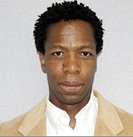 |
“A tabloid in Uganda, ran what it termed as an expose where it accused the gay community of recruiting school children into homosexuality. It went ahead and printed names and addresses and published photographs of members of the community in Uganda, consequently, putting their lives at risk. To make matters worse it called on the government to ‘hang them’ (the homosexuals) so as to stop the spread of homosexuality. As a result of this, some members of the community who had been exposed were forcibly outed to family and society, therefore putting them at risk. This is not what journalism is about. We should not be putting people’s lives at risk and preaching hate and lies, even if one does agree with the lifestyle choice one makes.”
Kevin told us his story of having interviewed the editor of the newspaper responsible for those attacks and the patience and discipline it required of him to conduct the interview with someone so brazenly defending pure evil. As Kevin noted on his application to the 2011 j-school:
“I am strong believer in free speech, though I may not always agree with the views of others. If we don’t expose ourselves to speech that is hateful, bigoted and biased then we are denying that this exist out there in the real world.”
Please consider supporting Kevin’s scholarship at this link:
Laura Herrero, 25, Cuernavaca, Mexico
 |
“There are many cases of the sin of bad journalism, from the Latin American media organizations that have opened up far too big a space for so-called yellow journalism to the bad press that plants fear between people and their own neighbors. For example, a very prominent Central American newspaper published a press release by the government of that country in which it recommended that tourists to that land were, it said, bringing the dangers of AIDS from the World Cup championships in South Africa. Instead of advocating prevention, it was a call to abstinence, and only served to launch prejudices and fear. I consider this kind of journalism to be irresponsible…”
Laura, along with 15 more of this year’s scholars, will be part of the School of Authentic Journalism’s workgroup on viral video production.
Please consider supporting her scholarship at this link:
Lucero Mendizábal, 34, Oaxaca, Mexico
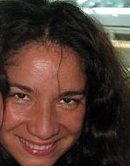 |
“I believe that the power of the word or access to media are double edged swords and that every article can harm, discredit and defame a person or an entire historic and exemplary movement. Benefiting from the window of visibility in the media is one of the most effective strategies, understanding the media as one of the most influential powers over public opinion. In these times the word is manipulated, or better said, those in charge show us as democracy, progressive or anarchy already from the point of view of the controller, the oppressor. They kidnapped the media and all language and distorted it, remade it and constructed it in their style. That’s why it is important to reconstruct the media to be able to reconstruct words and language… The commitment of the authentic journalist is to provide voice to those that do count with spaces to make themselves visible, remembering the refrain of that which is not seen does not exist, or what is not said is not heard…”
Please consider supporting Lucero’s scholarship via this link:
Maggie Lemere, 28, Washington DC, US
 |
“When I was visiting Malaysia this past year, I visited a refugee community who was secretly living on the side of hill in a suburb outside of Kuala Lumpur. Kuala Lumpur does not have / allow any refugee camps in its country, so there are groups of refugees who simply squat in the jungle forests to survive. When I arrived to the community’s home base, a collection of wooden huts on the hillside, only a few men remained with their dogs. There was an eerie quiet as I looked around and saw dolls belonging to children and pots and pans the women would normally have cooked with. The remaining men told me that a few days before, a ‘journalist’ came to take their photos and stories so that they could try to help them. However, a story was run in a local newspaper a few days later that shared their exact location, and gave the perspective that these people were illegal, dangerous and needed to be imprisoned and deported. Once the refugee community found out about the article, they all had to go into hiding in makeshift camps on other parts of the hill fearing an immediate raid. In fact, we had to cut our interview off early so the men could go into hiding. Clearly this journalist and his paper had an agenda that represented an anti-immigration/refugee slant, and the journalist was unethical in garnering the community’s trust and lying about his intentions.
“Security is a frequent issue with the Burmese community members that I work with. Even journalists with the best of intentions, sometimes make mistakes that compromise the person they used to get a story. They may publish information about the person that would lead to their arrest and torture, without fully discussing that possibility with the subject first. For me, this is one reason it makes sense to build long-term relationships with people and communities as much as possible, so that you know strategies for how to report a story without needlessly /unethically further endangering vulnerable populations, who have actually helped you out.”
This is one of the most important parts of our School of Authentic Journalism curriculum: how not to bring further harm, as a journalist, on peoples already in considerable dangers and problems. We’ll, no doubt, ask Maggie to give us a hand in that.
Please consider supporting Maggie’s scholarship via this link:
Maria Dayton, 31, Washington DC, US
 |
“In 2007, my co-worker (Amr Tharwat) at the Ibn Khaldun Center in Egypt was forcibly disappeared after returning from the inaugural conference of the Arab Democracy Foundation in Qatar. There were many reasons for his arrest, not only was he was in charge of the monitoring of the Shura Council Elections but he was also active in the Quranist movement which is the Muslim equivalent of the protestant reformation. Many people within the human rights field were more interested in protecting themselves than in helping me find Amr or in filing out the necessary legal paperwork. After many desperate attempts, I became quite demoralized by the lack of attention his case was getting within the activist community in Egypt. Long story short, after many appeals to the media, his extended family in the US succeeded in getting a major American newspaper to write an article about the crackdown on Egyptian activists including Amr’s case. The Egyptian government responded to that article by releasing information about Amr’s whereabouts and eventually allowing the legal representation that eventually led to his release.
“This has happened repeatedly since I began working on democracy and human rights related issues and has only reinforced in my mind the power of the media to protect activists on the ground.”
Please consider supporting Maria’s scholarship via this link:
Matt Mulberry, 22, Washington, DC, US
 |
“I spend a lot of time reading and analyzing news. The ‘digestion’ occurs via reading, understanding and extracting significant pieces of the article that I use to form a blurb designed to entice the reader to read more as well as highlight the aspects of the story that pertain to nonviolent conflict. I do this 70 times per digest… It has also made me more aware of grammatical mistakes and spelling. I can now edit more quickly, efficiently and effectively than I ever could before.”
In short time, Matt has become a walking encyclopedia on civil resistances throughout the world, in great detail, which not only increases his own capacities as a journalist, but makes him an invaluable resource to others who report on such movements.
Please consider supporting Matt’s scholarship via this link:
Mishel Boddin, 38, La Ceiba, Honduras
 |
“I don’t believe that authentic journalists should limit themselves or change their manner of reporting based on who is in power. They simply must be authentic when reporting about it. On the other hand, I don’t think the objective of social movements is the conquest of state power. It is more so that the rights of peoples historically excluded, made invisible and marginalized, should be recognized in all processes of the country, which are rights established in the magna carta of human rights and are rights which the Constitution of our country recognizes.”
Please consider supporting Mishel’s scholarship through this link:
Namees Arnous, 22, Cairo, Egypt
 |
“No speech should be prevented at a journalism school as I think that one of the aims of journalism is to provide people with information, so it is not fair to prevent that information from reaching the people. We also have now, in the twenty-first century, a legend called the Internet to provide us that information very quickly. Everyone has a right to say what they want and voice their point of view on any issue, and journalists have to broadcast and publish their voices in a professional way… Work in journalism is hard and requires a lot of effort. It is not just a job. It is a passion.”
We’ll be meeting Namees a little sooner than many of the other members of the class of 2011, as we begin reporting from Egypt this week.
Please consider supporting Namees’ scholarship through this link:
Nathan Mpangala, 40, Dar es Salaam, Tanzania
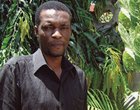 |
“Journalism has given me confidence. I can stand and express my feelings to the public. Journalism has helped me to know my rights and ask for them when needed.
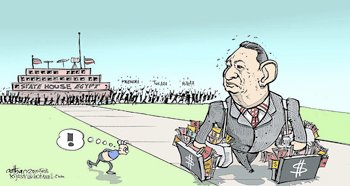 |
“In order to do a good editorial cartoon, you need to be well informed and open minded on day to day happenings. You need to see issues in a wider and not narrow aspect. You need to have enough knowledge so that you can analyze issues critically and ethically. You need to observe environments by traveling, talking to people, this is important for the references. You should be eager to learn and expose new things. You should know that an editorial cartoon is a powerful tool that should be used properly for the benefit of the society, especially the voiceless people. Editorial cartoons can encourage or discourage people, they can create peace or conflicts. They reveal a cartoonist’s thoughts and not an editor’s opinion.
“Before starting an editorial cartoon, there are steps you have to follow. You need to have an agenda. You should ask yourself what you want to say. To whom do you want to pass your message? You need a plain paper, a pencil, an eraser and a pen and a computer for those who are using it. Your cartoon can have a straight or a hidden message, it can provoke. Editorial cartoons should be humorous, readable, organized, timely and clean. The best one is the one with less text or textless. You need a diary to keep your ideas and simple sketches. Last but not least you need to be an updated person by listening or reading news all the time, to be close to the Internet and, most importantly, talking with people and hearing their voices…”
Just this week, Nathan launched a new blog collecting many of his works.
Please consider supporting Nathan’s scholarship via this link:
Nazaret Castro, 31, Buenos Aires, Argentina
 |
“I learn and work with enthusiasm because I’m very committed to what you call the otherwise dignified vocation of journalism. I refuse to cross those lines that so many compañeros end up crossing with the self-justification that one has to eat and pay the bills. I believe in journalism even in these times in which it is not well defined, or, better said, even more still in these times. When I came across your school and read online and in this application, I understood that your proposal has everything to do with me and I felt that I can’t miss this gathering. I hope to have good luck and be one of the selected and that we meet very soon…”
We consider ourselves lucky, too, Nazaret, to make your acquaintance. Come ready to work hard!
Please consider supporting Nazaret’s scholarship at this link:
Patricia Guerrero, 23, Mexico City
 |
“The social movements that have shook Latin America in recent decades (EZLN in Chiapas, the Community Policing movement in Guerrero, the Landless movement in Brazil) have surged from the only place that the Marxists did not consider: the original peoples. Original peoples that have different ideas or perspectives about what progress means, they are not movements that fight to take state power. They are movements that have in common the struggle for land, for their land. They are movements that defend dignity because that is the only thing the State can’t take away from them, and from there they construct their universe, invent new methods of political, social and economic organization. And this is what bothers the Western governments, facing an adversary that doesn’t even want to be called one because it is an autonomous political entity that doesn’t need directions from international organisms to make its path.
“A journalist that defends the State to an extreme is not an authentic journalist. He is a journalist of the State, part of the press secretary’s office and nothing more. He is not authentic because he is not seeing or hearing, he is just a recorded message of what he is supposed to say, reproducing it again and again. There are no truths or lies, there is a prefabricated discourse. With his white gloves he writes dead letters about a world that does not exist…”
Please consider supporting Patricia’s scholarship at this link:
Quincy Saul, 24, New York City
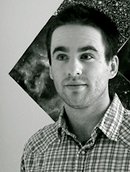 |
“The debate surrounding the role of journalists in South American countries is strongly reminiscent of the debates surrounding journalism in the Soviet Union in the early 20th century. Should foreign journalists report on the contradictions and controversies of the revolutionary process, or is any criticism counter-revolutionary? How were revolutionary journalists in Russia to report on the plight of the anarchists, or the Kronstadt sailors, who were some of the strongest supporters of the October Revolution but who quickly became the most strongly persecuted victims of the Bolshevik state? What was more important and urgent, the defense of the revolutionary state, or the defense of the people who built the revolution?
“The experiences, decisions and writings of journalists who faced these difficult questions in Soviet Russia may help to inform our understanding of the current contradictions of journalism in South America. Emma Goldman, exiled from the United States, arrived in the USSR with high hopes and for two years worked for the Bolshevik government in a variety of functions. Eventually, her experiences led her to condemn the Bolshevik party and she escaped the country. On the other side, John Reed and Anna Louise Strong, also visiting journalists from the United States who lived and worked for years in Russia, ultimately sided with the revolutionary government and defended even its controversial actions in their articles and books. Reed and Strong did not overlook the contradictions of the revolution; all three journalists were diligent investigators and all of them were personally connected to the immense sacrifices that the Russian people made, willingly and unwillingly, for the revolution. But in the end their different views about the nature and purpose of revolution led them to tell very different stories.
“How can we know, as journalists or as readers of journalism, which stories are legitimate? Which journalists are authentic? In her book, My Disillusionment in Russia, Emma Goldman writes a chapter on what she calls ‘the traveling salesmen of the revolution’. Most, Goldman writes, did not speak the language or make even a pretense of looking beyond the surface. These were groups of foreign journalists, delegates and adventurers who were entertained lavishly, taken on tours of Potemkin villages, and finally sent home to write glowing reports of the revolution… John Reed, Anna Louise Strong and Emma Goldman were all authentic journalists in the sense that they didn’t refuse to see contradictions, they worked closely with the revolutionaries, and they lived by strong principles and convictions, not only about revolution but about themselves.”
Please consider supporting Quincy’s scholarship via this link:
Rachel Lynch, 23, Buenos Aires, Argentina
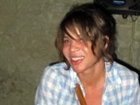 |
“As authentic journalists, it is our job to help movements convey their strength to the world. It is imperative that we write from the voice of the people and movements that are many times silenced, misquoted, or repressed into the margins of society and the media…. The main goal of an authentic journalist is to defend the people and their truth and this is what attracts me to the field. When the story of the people is told accurately from below, it affects viewers in a different way, in a way that promotes change and awareness. Searching for the truth is difficult and often people choose to give up and become complacent in a censored media. To me, an authentic journalist is there for those times when people do give up to provide an alternative news source.”
Please consider supporting Rachel’s scholarship via this link:
Rebecca Ellis, 37, Mexico City
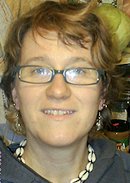 |
“An authentic journalist is not wholly objective– pure objectivity does not exist. However, an authentic journalist must attempt to report varying sides and present a viable argument only after several voices have already been brought to the table. This includes accounting for changes in political alliances and networks when investigating political controversies. If a shifting political landscape is allowed to bury conflicting opinions, the journalist runs the risk of being a slave to his or her own subjectivity or political bias. A journalist’s political background is better served as a point of departure…”
Please consider supporting Rebecca’s scholarship via this link:
Sandra Vi Sánchez, 28, Guatemala City
 |
“Some factors that I believe can help a journalist measure the legitimacy of a social or resistance movement is the ability to put one’s self in the shoes of the other person to be able to better understand the why and what that is happening, with conclusions reached by the investigations we should conduct we can have a wider panorama of the facts. We should always report on actions with the same journalistic honesty, importance and interest, before during and after the facts: Our goal should be the transmission of truthful information. That is part of being an authentic journalist.”
Please consider supporting Sandra’s scholarship via this link:
Shazia Hazan, 42, Karachi, Pakistan
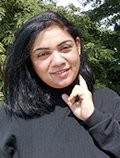 |
“There are stories everywhere if you have the eye to catch them,” Shazia told us back in 2009. She continues her work as a reporter at the English language daily Dawn in Pakistan, is self taught at journalism, and a highly advanced karate practitioner. As she told us last year:
“Giving up my education at an early age, I am entirely self-taught. Today my younger cousins and the rest of the family and friends, who had seen me cooking, doing dishes, washing clothes and floors, etc., are surprised to see me in the role of a successful journalist, who is occasionally also called on TV as an expert. They had had no expectations from me and had pretty much judged me as a simpleton. It has taught me and them, too, not to judge anyone. People have unlimited potential to improve on themselves as well as change the lives around them.”
Please consider supporting Shazia’s scholarship via this link:
Soraya Aguilar, 40, La Paz, Bolivia
 |
Soraya is a tireless promoter of and participant in indigenous cinema, an organizer of fellow and sister independent journalists, one of the lead communicators for the movement to bring former president Gonzalo Sánchez de Lozada and his collaborators to justice for crimes against the Bolivian people, and one of the rare and especially super-competent makers of history we’ve run across on so many roads throughout the hemisphere. This year, with the help of our sponsors at the Autonomous University of Mexico City (UACM, in its Spanish initials) we’re going to “try, try again” to get Soraya to the school. By now, she can probably teach the courses she would have attended in 2004, but as everybody knows, we do press “students” into teaching roles frequently at this school. So, welcome back, Soraya!
Please consider supporting Soraya’s scholarship via this link:
Tadeu Breda, 26, Sao Paulo, Brazil
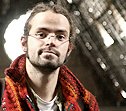 |
“For me, journalism is reporting, and reporting is the street, the countryside, the jungle, smiles, tears, skin… people! There is no reporting without investigation. I love narrative and telling stories with words as well as images…
“Good journalism is already revolutionary. That is to say, in Brazil, the alternative media didn’t need to become militants in the campaign of Dilma Rousseff for president to, for example, demonstrate that the political discourse of her rival Jose Serra was based on prejudice, superficiality and dark forms of thinking in order to win the vote of the population. Authentic journalism needs to work for itself. Reporting is not a question of selecting between one or another: it is not allowing one’s self to be swept away by the fight between candidates and instead put one’s self with democratic values and their compliance. The authentic journalist must always defend them, fall who may fall, whether a politician or a government of the right or the left. We can appropriate the phrase of the anarchist thinker Proudhon (‘If there is property, I’m against it’) and say that the authentic journalist has to put himself eternally against injustice. If there is injustice, the journalist must be against it…”
Please consider supporting Tadeu’s scholarship via this link:
Terri Bennett, 33, New York City
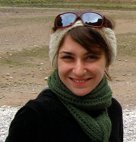 |
“I was extremely aware of the pitfalls of mainstream journalism in Haiti. The city I lived in was hit hard by the earthquake and continued to ‘make the news’ throughout my time there. I scoured the internet for stories, but found that many articles seemed to reach publication in adulterated form. Stories were either watered down to allow for cute and catchy ‘feel good’ pieces or sensationalized in a way that suggested most earthquake-affected Haitians were still standing in a pile of rubble crying for help. Very little media of any kind seemed people-centered and almost all media failed to capture the complexities of a place torn apart by a natural disaster but held together by strong social fabric. While I understand the need for journalism to make stories ‘accessible’ and ‘digestible,’ it seems to me that many news outfits know what they want to publish before their reporters are even on the ground and this produces a view of Haiti devoid of context.
“I also had the strange (mis)fortune to stay at a hotel in Port-au-Prince that was the staging ground for the Associated Press during the anniversary of the earthquake. I was surrounded by the kind of ‘parachuting’ or ‘vulture’ journalists I have come to have a great deal of disdain for. Reporters flocked to events where people were commemorating loved ones, and as soon as earthquake survivors closed their eyes in prayer for the National Moment of Silence, photographers leapt from their spots on the sidelines to take close-up shots of the tears being shed. As a foreigner in Haiti also trying to document the event, I was ashamed to be associated with the rest of the international press and wanted to hide my camera. I wanted to capture life in Haiti a year after its catastrophic earthquake, but I wasn’t willing to rob anyone of their dignity for the ‘photo of the year.’”
Please consider supporting Terri’s scholarship via this link:
Tshepo Tshabalala, 21, Centurion, South Africa
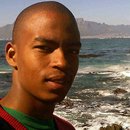 |
“I feel strongly about online journalism because I think Africa is only starting to explore this medium now. Most people don’t have computers in Africa, but there are many young people who now access the Internet through their mobile phones.
“I however feel South Africa is not using the online medium adequately enough yet. A good example is that the country’s only 24 hour television news station, the E-News Channel, does not have a news website.
“There is a need for major growth in the online sector and it will happen within the next few years. Many Africans start using computers for the first time when they enter university and the number of university students is increasing as evident in 2011 with universities failing to cope with all the students in need of university entrance. With this radical change I believe that there is also going to be growth in the number of people who use the online medium and I would like to be part of that change…”
Please consider supporting Tshepo’s scholarship via this link:
Tyler Stringfellow, 28, Seattle, Washington, US
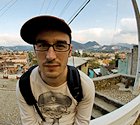 |
“Good journalism makes a difference in my life every day. I feel personally connected to a number of political causes (most intimately with many of the Latin American issues covered by Narco News) so whenever quality reporting is done on a cause that I’m passionate about I take it as a personal victory…
“To be a successful journalist you need a massive amount of integrity. Choosing important subjects, reporting them in an honest way, resisting outside pressure to re-frame a story, maintaining independence, protecting information/sources as well as respecting the rights of your sources, this all requires a level of integrity that not all of us possess…
Please consider supporting Tyler’s scholarship via this link:
Yael Gerson, 32, London, England
 |
“We have, as journalists a commitment and a responsibility to document and to communicate the voices of those who are silenced, and of those who are not heard. Simply going along with that silencing is what a US lawyer defines as malpractice. Anyone who has been a part of social movements understands that these are very complex processes, where information is often hidden by those in power, and it is difficult to get to much of what happens. A very obvious example of this comes in the current revelations that three key members of the environmentalist movement in the UK were undercover police. Their role was not to find out information, but to delegitimize the movement through steering members into activities that the state had designed. Historically, this has been a tactic of the government to shut down instances of social mobilization and civil resistance. For me, it is incredibly important to document as many voices of the people as possible, because it is through this that we can know what the people themselves are fighting for, and not what the leader of a group, organization or party defines as such.”
Please consider supporting Yael’s scholarship via this link:
Click here for more Narco News coverage of Mexico
Lea Ud. el Artículo en Español
- The Fund for Authentic Journalism
For more Narco News, click here.




